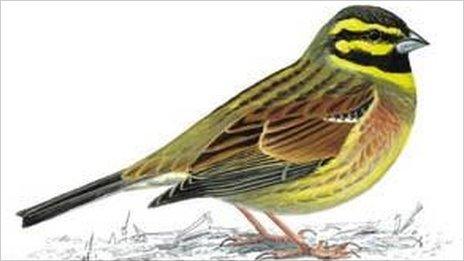RSPB hails 'remarkable' recovery of threatened cirl bunting
- Published
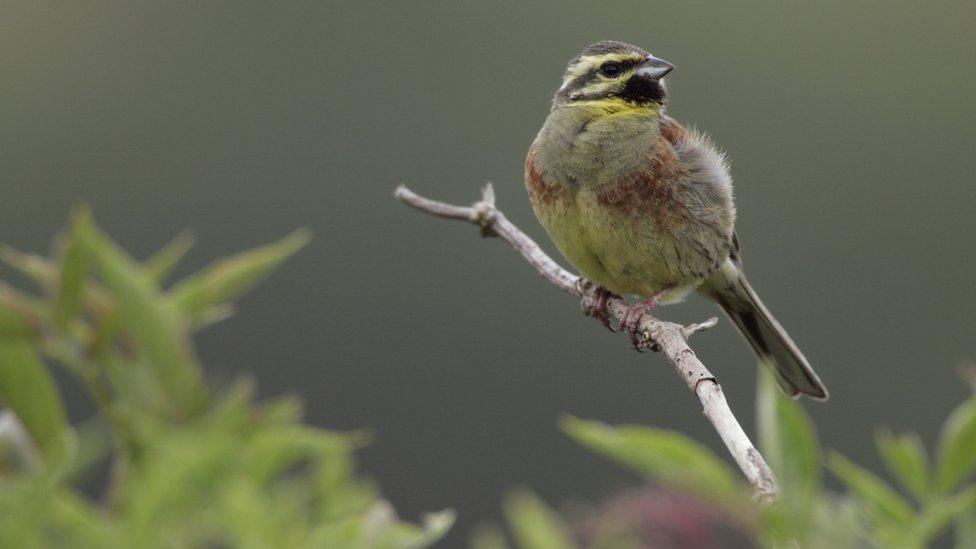
One of the UK's most endangered songbirds is no longer on the brink of extinction following a "remarkable" recovery, the RSPB has said.
The cirl bunting, a sparrow-sized bird predominantly found in Devon, has seen breeding numbers rise from just 118 pairs in 1989 to 1,078 pairs this year.
It had been threatened by changes to farming methods and hedge losses.
The RSPB said the turnaround came after a 25-year project with farmers to boost the bird's food supplies and habitats.
'Charming little bird'
Wildlife experts say the cirl bunting's decline in numbers was down to farmers switching to autumn-sown cereals, increasingly using pesticides and the removal of hedges to create larger fields.
The bird is known to forage in weedy stubble fields in winter and nest in hedges or scrub in the summer, when they rely on natural grassland to feed on grasshoppers.
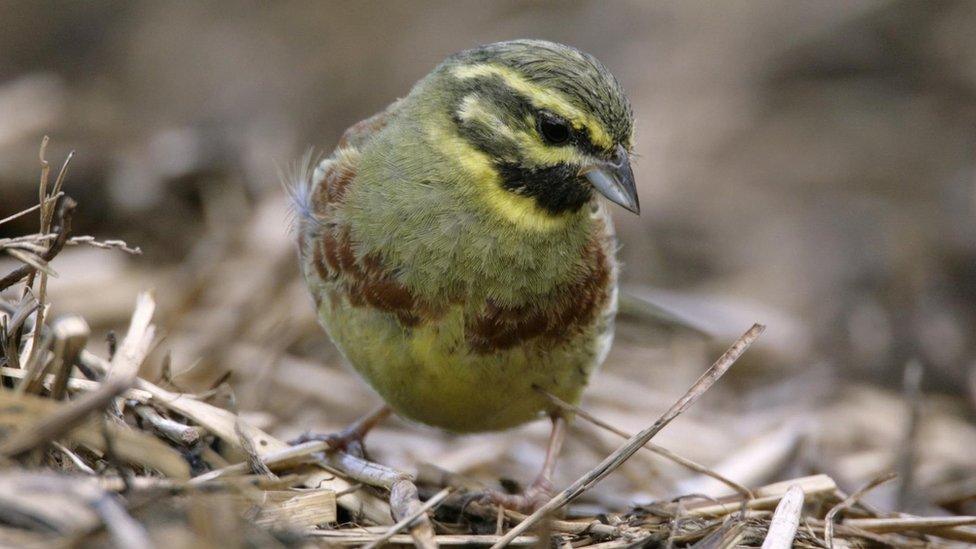
The RSPB said its recovery came after conservationists worked with farmers to help them take advantage of wildlife-friendly farming funding schemes.
They included growing spring barley - which after harvest is left as weedy stubble to provide seed for the cirl buntings - and planting grassed areas along the edges of field to provide insects and spiders for them to eat in the summer.
The bird is still mostly confined to Devon, the RSPB said, but a scheme in Cornwall has also established a population of 65 breeding pairs.
Martin Harper, RSPB conservation director, said: "The recovery of this charming little bird is a remarkable conservation success and shows what can be achieved when farmers and conservationists work together for nature.
"To go from being on the brink of extinction to have over a thousand pairs in just 25 years - bucking the overall downward trend for most farmland birds - highlights how effective this project has been.
"It is down to the care and hard work of farmers in Devon and Cornwall."
The National Farmers' Union's Mel Squires said the recovery of the cirl bunting had "not been through chance" but was down to "a true, committed partnership for 25 years".
- Published29 July 2013
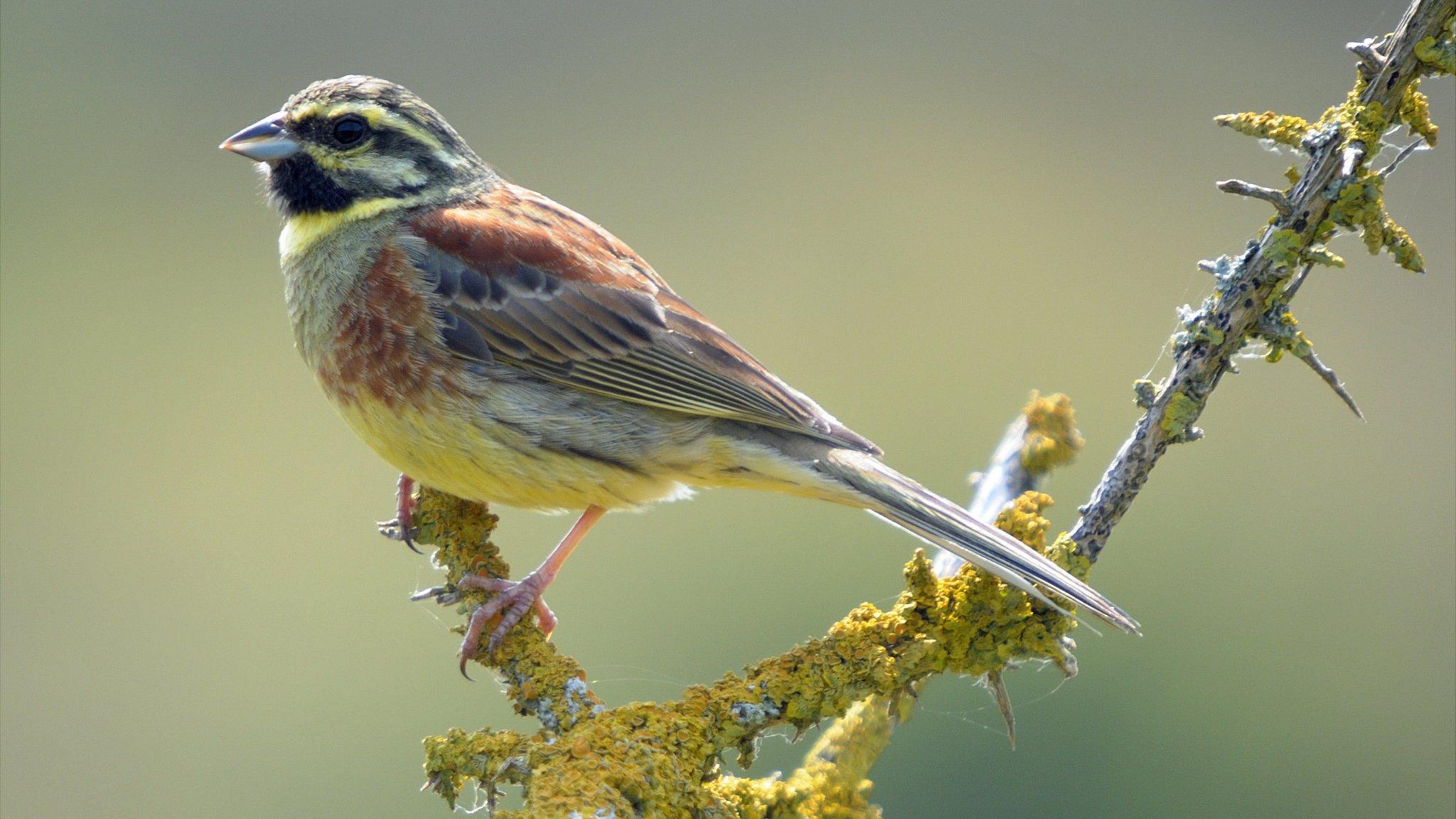
- Published30 October 2012
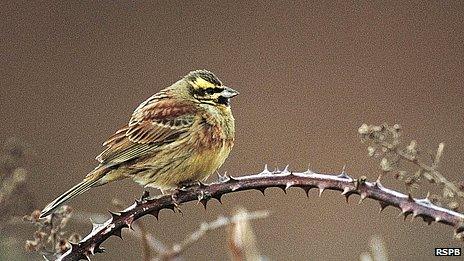
- Published22 July 2012
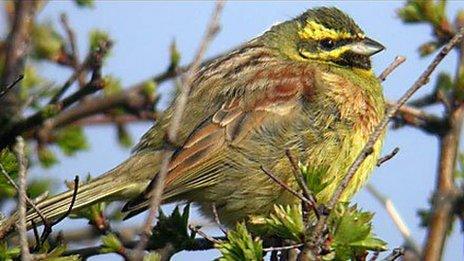
- Published6 October 2011
